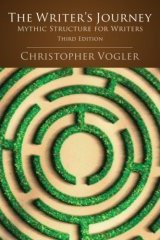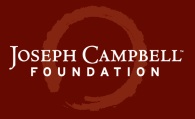
James Branch Cabell was an American author of fantasy fiction and belles lettres. Cabell was well regarded by his contemporaries, including H. L. Mencken, Edmund Wilson, and Sinclair Lewis. His works were considered escapist and fit well in the culture of the 1920s, when they were most popular. For Cabell, veracity was "the one unpardonable sin, not merely against art, but against human welfare."

Eddie Campbell is a British comics artist and cartoonist who now lives in Chicago. Probably best known as the illustrator and publisher of From Hell, Campbell is also the creator of the semi-autobiographical Alec stories collected in Alec: The Years Have Pants, and Bacchus, a wry adventure series about the few Greek gods who have survived to the present day. His graphic novel The Lovely Horrible Stuff, which playfully investigates our relationship with money, was published in July 2012 by Top Shelf Productions.

The Hero with a Thousand Faces is a work of comparative mythology by Joseph Campbell. In this book, Campbell discusses his theory of the mythological structure of the journey of the archetypal hero found in world myths.

The Power of Myth is a book based on the 1988 PBS documentary Joseph Campbell and the Power of Myth. The documentary was originally broadcast as six one-hour conversations between mythologist Joseph Campbell (1904–1987) and journalist Bill Moyers. It remains one of the most popular series in the history of American public television.

In narratology and comparative mythology, the monomyth, or the hero's journey, is the common template of a broad category of tales that involve a hero who goes on an adventure, and in a decisive crisis wins a victory, and then comes home changed or transformed.

William Francis Messner-Loebs is an American comics artist and writer from Michigan, also known as Bill Loebs and Bill Messner-Loebs. His hyphenated surname is a combination of his and his wife Nadine's unmarried surnames.

Kitchen Sink Press was a comic book publishing company founded by Denis Kitchen in 1970. Kitchen Sink Press was a pioneering publisher of underground comics, and was also responsible for numerous republications of classic comic strips in hardcover and softcover volumes. One of their best-known products was the first full reprint of Will Eisner's The Spirit—first in magazine format, then in standard comic book format. The company closed in 1999.

A Skeleton Key to Finnegans Wake is a 1944 work of literary criticism by mythologist Joseph Campbell and Henry Morton Robinson. The first major text to provide an in-depth analysis of Finnegans Wake, A Skeleton Key to Finnegans Wake is considered by many scholars to be a seminal work on the text. The term monomyth, which Campbell used to describe his journey of the hero in his book, The Hero with a Thousand Faces, came from Finnegans Wake.

Phil Cousineau is an American author, lecturer, independent scholar, screenwriter, and documentary filmmaker.

Richard Russell Riordan Jr. is an American author. He is known for writing the Percy Jackson & the Olympians series, about a twelve-year-old boy who discovers he is a son of Poseidon. His books have been translated into 42 languages and sold more than 30 million copies in the US. 20th Century Fox has adapted the first two books of his Percy Jackson series as part of a series of films. His books have spawned related media, such as graphic novels and short story collections.

The Inner Reaches of Outer Space is a 1986 book by mythologist Joseph Campbell, the last book completed before his death in 1987. In it, he explores the intersections of art, psychology and religion, and discusses the ways in which new myths are born. In writing the book, Campbell drew on transcripts of a series of lectures and conversations that he gave in San Francisco between 1981–1984, including legendary symposiums with astronaut Rusty Schweickart and with members of the Grateful Dead.

The Flight of the Wild Gander is a 1969 book by mythologist Joseph Campbell, in which he collects a number of his early essays and forwards. Essays include "Bios and Mythos", "Mythogenesis" and "The Symbol without Meaning".
Robert Walter is an editor and an executive with several not-for-profit organizations. Most notably, he is the executive director and board president of the Joseph Campbell Foundation (JCF), an organization that he helped found in 1990 with choreographer Jean Erdman, Joseph Campbell's widow.
David Kudler is an American editor and author. He is best known for editing several posthumous editions of the books by Joseph Campbell, including Pathways to Bliss and the 2008 edition of The Hero with a Thousand Faces.

The Lost Hero is an American fantasy-adventure novel written by Rick Riordan, based on Greek and Roman mythology. It was published on October 12, 2010, and is the first book in The Heroes of Olympus series, a spin-off of the Percy Jackson & the Olympians series. It is preceded by The Last Olympian of Percy Jackson & the Olympians and followed by The Son of Neptune. The novel has since been translated into many languages and released as a hardcover, e-book, audiobook and paperback.
Frederick W. Turner, born in Chicago in 1937, is an American writer of history, including an acclaimed biography of the naturalist John Muir, and historical novels. He has published a revised and annotated edition of Geronimo's 1906 autobiography.

The Writer's Journey: Mythic Structure For Writers is a popular screenwriting textbook by writer Christopher Vogler, focusing on the theory that most stories can be boiled down to a series of narrative structures and character archetypes, described through mythological allegory. Vogler based this work upon the writings of mythologist Joseph Campbell, particularly The Hero with a Thousand Faces, and holds that all successful films innately adhere to its principles. The book was very well received upon its release, and is often featured in recommended reading lists for student screenwriters.
















